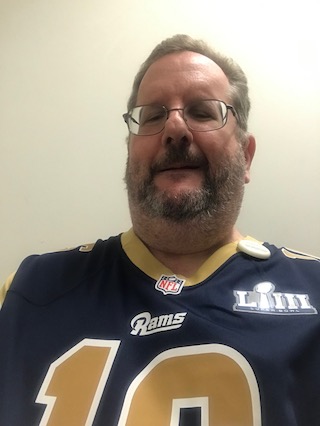As I mentioned in my last post, I’m working on my weight per doctor’s orders. In addition to paying more attention to my eating, exercise, and weight, I’m also paying attention to the language surrounding these efforts. Our words form our thoughts, and our thoughts determine our actions. So let’s take a look at what we call weight loss.
The term weight loss itself causes us problems. Loss is always negative. It implies that something we had, usually of importance or value, has gone missing. If we lose something, we want to find it. And I’ve found my old weight numerous times.
To lose weight, we go on a diet. We associate diets with carrot sticks, rice cakes, and forsaking cheeseburgers. We also consider a diet temporary. Once we’ve impressed classmates at the high school reunion or come to the end of swimsuit season, we can go back our “normal” eating. That’s when we forget the other meaning of diet, which is the food and drink we habitually consume. Technically, a double latte for breakfast, a jumbo burrito for lunch, a bag of potato chips for afternoon snack, and steak and a baked potato for dinner (with a couple beers, an appetizer, and ice cream for dessert) is a diet.
When we try to eat right, we face conflicting and misleading labels. What does it really mean when a food is branded as healthy? It may be low in calories, but high in sugar and sodium. Think those new plant-based proteins are good for you? They may be good for the planet (and actually taste good), but it doesn’t mean they’re that much better for you than meat.
What are we supposed to do when we need to change? We need to come up with our own language of health.
Instead of weight loss, we can talk about lifestyle change. It’s not just about the number on the scale. When you change what you eat, you change other things about your life. You change how you shop. (You can shave a half hour off your Costco run when you’re not cruising for samples.) You set aside social media for a moment so you can prepare your meals. You make time for exercise because you miss it when you don’t work out. Your clothing changes. More fashionable outfits become available to you, and you choose them to show off the work you’ve done for your body.
Lifestyle change also affects your social life. You may drift away from your “eating buddies” when you no longer have high-calorie meals and excuses for failed diets to talk about. Your growing confidence will bring you into the orbit of more positive people. Your successes gain attention and inspire others (especially your family) to make changes as well. You realize that it’s not just your body that has changed. The way you see yourself has changed. A lifestyle change encompasses everything, including our self-image.
This is the reason why my previous attempts at weight change haven’t lasted. It’s hard to stay thin when a fat person remains in your head. It isn’t hard to shed weight. The real challenge is changing a lifetime of issues–from our emotional connections to food, persistent self-doubt, fear of hunger and discomfort, using fat as protection, eating to feel in control, and much more. To change our thinking, we need to change the words we use. Language matters.
We need help to change our language and lifestyle. I rejoined WW (formerly Weight Watchers, which itself is an exercise in reframing language). You can work with a nutritionist if you need specialized assistance. Also consider working with a therapist, clergy, a support group, or a mentor if you have deeper issues or past traumas that affect your self-image.
I’m making a lifestyle change for my health, for my family, and for this wonderful opportunity to break out as a writer. It’s worth changing my language, meals, and life to make this happen.






[…] I’ve had a lot to do. Something I didn’t do was set up a launch party. With my current health efforts, calorie-laden festivities were out, especially when we have a calorie-laden holiday the next day. […]
[…] to choose better. It’s choosing to send out one more manuscript submission, deciding to work on my health instead of accepting cardiovascular disease as my family’s legacy, and saying yes to any […]